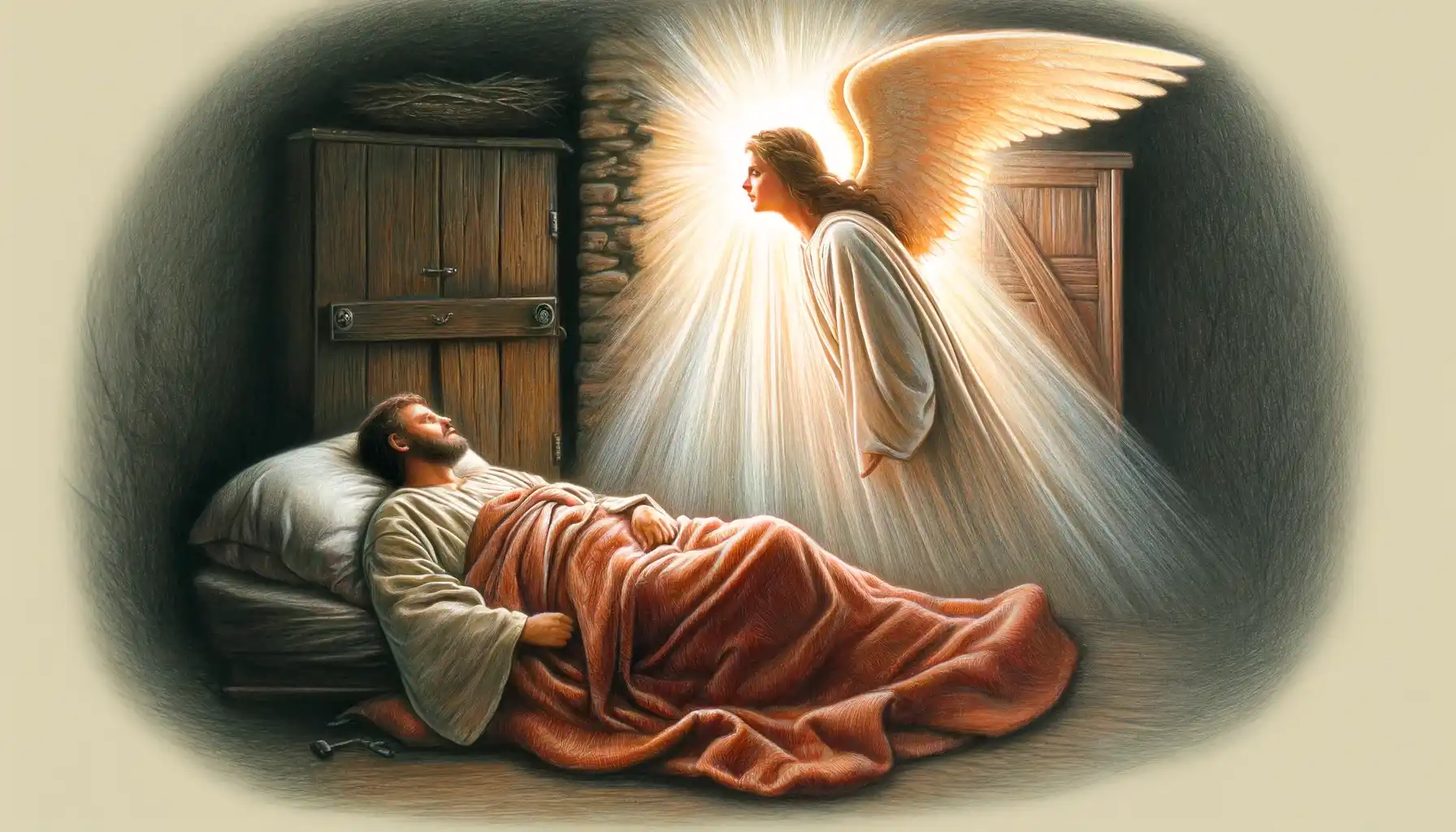
The Prophecy of a Virgin Birth
The prophecy of a virgin birth in Isaiah 7:14, which is fulfilled in Matthew 1:18-23, is a cornerstone of Christian theology regarding the miraculous nature of Jesus’ birth. Here are some quick facts about this prophecy and its fulfillment:
- Biblical Prophecy: Isaiah 7:14 predicts that a virgin will conceive and bear a son, and will call his name Immanuel, meaning “God with us.” This prophecy is given as a sign from God to King Ahaz of Judah.
- Context in Isaiah: The prophecy initially serves as a reassurance to King Ahaz during a time of political crisis, indicating God’s presence and divine intervention.
- Fulfillment in Matthew: The Gospel of Matthew cites this prophecy to illustrate that Jesus’ birth from the Virgin Mary, betrothed to Joseph, fulfills Isaiah’s words, emphasizing Jesus’ divine origin and mission.
- Theological Significance: The virgin birth is seen as a sign of Jesus’ divine nature, marking His entrance into the world as both fully human and fully divine, a central tenet in Christian doctrine.
- Virgin Mary: Mary’s role as the virgin mother is pivotal in Christian theology, symbolizing purity and obedience to God’s will. Her acceptance of this role is a model of faith and submission to God.
- Criticism and Interpretation: The term “virgin” in Isaiah, translated from the Hebrew word “almah,” which can mean a young woman of marriageable age, has led to debates about the intended meaning. However, the Greek translation used in the New Testament, “parthenos,” clearly means “virgin,” reinforcing the miraculous nature of the birth as understood in Christian tradition.
- Impact on Christian Worship: The virgin birth is celebrated in Christian liturgy and doctrine, particularly during Christmas and in the doctrines of various Christian denominations, emphasizing the miraculous and salvific nature of Jesus’ birth.
The prophecy of the virgin birth, cited in Isaiah 7:14 and its fulfillment in Matthew 1:18-23, holds profound theological and historical significance in Christianity. This narrative is not just a cornerstone of the Christian faith but also serves as a fascinating intersection between prophecy, theology, and Christology. Here’s a comprehensive analysis of this topic:
Contextual Background
- Historical Setting in Isaiah: Isaiah’s prophecy occurs during a period of intense political instability. Ahaz, king of Judah, faced threats from neighboring kingdoms. Isaiah’s message is meant to reassure Ahaz that God would protect Jerusalem from its enemies. The sign of a young woman (almah) bearing a son named Immanuel was initially a short-term assurance to Ahaz, indicating God’s presence.
- Gospel Narrative in Matthew: Matthew’s Gospel reinterprets Isaiah’s prophecy to relate to Jesus’ birth, aimed at a Jewish audience familiar with the Hebrew scriptures. Matthew presents Jesus’ virgin birth as a fulfillment of Isaiah’s prophecy, emphasizing His divine origin and the miraculous nature of His conception.
Theological Implications
- Virgin Birth: Central to Christian doctrine, the virgin birth is seen as a miracle that signifies Jesus’ divine nature. It underscores the belief in Jesus as the incarnation of God, born without original sin. The concept of the virgin birth also highlights the work of the Holy Spirit, illustrating a divine intervention into human history.
- Immanuel – God with Us: The name “Immanuel,” which means “God with us,” is significant. It expresses the Christian belief that Jesus is God made flesh, dwelling among humanity. This idea is central to understanding the nature of Jesus’ mission and His unique identity as fully divine and fully human.
- Fulfillment of Prophecy: Matthew’s use of Isaiah 7:14 is part of a broader motif in his Gospel, where he frequently cites Hebrew scriptures to argue that Jesus’ life and mission fulfill Old Testament prophecies. This technique not only asserts Jesus’ messianic status but also aims to validate the Christian message to a Jewish audience.
Critical Interpretations
- Translation and Meaning of ‘Almah’: The Hebrew word “almah,” meaning a young woman of marriageable age, does not explicitly denote virginity. The Septuagint, a Greek translation of the Hebrew Bible, uses the word “parthenos,” meaning virgin, which Matthew adopts. This translation choice has been a focal point for debates on the interpretation and intention behind Isaiah’s original prophecy.
- Historico-Critical Perspectives: Scholars often discuss whether Matthew’s interpretation of Isaiah was a retrospective insertion to fit the narrative of Jesus’ life or a genuine fulfillment of prophecy. This discussion involves examining the Jewish expectations of the Messiah during the Second Temple period and how early Christians understood Jesus’ birth and mission.
Impact on Christian Worship and Doctrine
- Liturgical Celebrations: The virgin birth is celebrated during Christmas, one of Christianity’s most important feasts, symbolizing hope, the miraculous, and the new covenant between God and humanity.
- Creeds and Confessions: The virgin birth is a standard element in Christian creeds and doctrinal confessions, affirming the belief in Jesus as the Son of God born of the Virgin Mary, which underscores His divine and human natures.
In summary, the prophecy of the virgin birth and its fulfillment in the Gospel of Matthew encapsulate critical elements of Christian belief, bridging Old Testament expectations with New Testament revelations. It is pivotal in understanding Jesus’ divine-human nature, fulfilling God’s salvific plan, and confirming His continual presence (“Immanuel”) with His people.
Leave A Reply
You must be logged in to post a comment.




2 Comments
You replied to this comment.
Thank you for your suggestion! Adding a feature to save or favorite content is a great idea to enhance user experience and facilitate easy access to preferred resources. We’ll consider implementing this in future updates to better serve your study and reflection needs.